White pollution disaster warning
In Vietnam, according to the report of the Plastics Association, in 2015, Vietnam produced and consumed about 5 million tons of plastic and this number increased by 20-30%/year. Of which, about 80% of imported materials were used from scrap plastic. The plastic consumption index per capita in Vietnam increased rapidly from 3.8 kg/year/person in 1990, increased to 41 kg/year/person in 2015, and is expected to reach about 43-44 kg/year/person by 2025 and is likely to be even higher.
The Department of Agriculture and Environment and the Vietnam Fatherland Front Committee launched a movement to join hands against waste and plastic waste.
Notably, the amount of plastic waste and nylon bags accounts for about 8 - 12% of domestic solid waste. If an average of about 10% of plastic waste and nylon bags are not reused but completely discarded, the amount of plastic waste and nylon bags discarded is approximately 2.5 million tons/year, this is a burden on the environment and the "white pollution" disaster is not far away but already present.
In fact, in Tuyen Quang , although it is considered one of the provinces that has not yet reached the alarming level of white pollution disaster, the amount of plastic waste and nylon bags used and discharged into the environment every day in the area has also startled many people. According to Ms. Nguyen Thi Oanh, owner of a popular restaurant in Phan Thiet ward (Tuyen Quang city), every day to wrap food for customers, she has to use about 1 - 1.5 kg of nylon bags, not to mention a large number of foam boxes. Those are small establishments, with agents, stores, supermarkets, the amount of nylon bags used will be 2 - 3 times more, even 5 - 10 times more. In public places in Tuyen Quang city, district centers, the situation of plastic waste being thrown away in the wrong place still occurs. Mr. Tran Van Quyet, Team Leader of Team 1, Tuyen Quang Urban Management and Environmental Services Joint Stock Company, shared: Team 1 is in charge of collecting Tan Quang and Minh Xuan wards in Tuyen Quang city. Every day, the team collects no less than 40 garbage trucks, about more than 1 cubic meter/truck, of which a lot is plastic waste. This amount of garbage has not decreased but is increasing. Mr. Quyet shared more: With such a large amount of garbage, many people lack awareness to litter indiscriminately, not in the right place, causing difficulties for the team members in collecting garbage.
In urban areas, plastic waste and nylon bags are collected, gathered and treated by landfill, but in rural areas, this waste is almost not collected or very little, and most of it is carelessly discharged into the environment.
According to statistics, by December 31, 2024, the total volume of domestic solid waste generated in the province is about 390 tons/day, the total volume collected is about 235 tons/day. The average collection and treatment rate in urban areas is about 95.5%, in rural areas is 40%.
Ngoi Khong in Hong Son commune (Son Duong) is only clean when heavy rains fall or the flood on Lo river rises, otherwise not only the garbage bags, mainly nylon, are compacted and thrown away by people like a public dump. Mr. T.D.A, Kim Xuyen village shared: A year ago, there was a business that collected garbage and transported it to the commune's landfill, Ngoi Khong was clean within a few years. However, since the beginning of 2024, the commune's landfill has run out of space, the business has stopped collecting, all garbage, including solid waste, is thrown away by people in the area.
Abuse of plastic products and nylon bags
Comrade Phung The Hieu, Head of the Department of Environment, Hydrometeorology and Climate Change, Department of Agriculture and Environment, explained that the factors that cause the amount of plastic waste to increase today are the speed of urbanization and population growth, which makes the demand for daily life greater, especially the dependence and habit of consuming disposable plastic products in many areas (food, beverages, packaging, etc.). In fact, many people still maintain the habit of abusing plastic products, nylon bags, even the smallest items such as toothpicks that many people use after meals are now made of plastic. They think that using plastic products is clean, durable, and convenient. Ms. Nguyen Thi Thuy, An Tuong commune (Tuyen Quang city) did not hesitate to share: Since having a baby, instead of using porcelain, glass, and wooden products, her family has switched to using plastic products, from kettles to household items. According to Ms. Thuy, plastic products are convenient, cheap and durable. If accidentally dropped, they are not as dangerous as glass or ceramic.
Youth Union members of the Department of Agriculture and Environment distribute environmentally friendly bags to people in Bang Coc commune (Ham Yen).
The habit of using plastic products, especially disposable plastic items, is increasingly discharged into the environment, but they are not classified and treated effectively, becoming a problem. According to the report of Tuyen Quang Urban Management and Environmental Services Joint Stock Company - the largest waste collection and treatment unit in the province today, each day the unit collects over 80 tons of domestic waste from people in the inner city, in addition to waste from local markets including: Organic waste, hard-to-decompose waste, mainly plastic waste, nylon bags... The entire amount of waste is currently still collected, gathered, transported and treated according to the most common treatment process, which is landfill.
Mr. Nguyen Ngoc Anh, in charge of the Company's Planning Department, explained: If waste is classified at the source, at least 2 types of vehicles are needed to collect and transport it to 2 separate treatment facilities, which will be difficult for businesses under current conditions. Another difficulty is that there are no technical and economic standards from competent authorities, making it difficult for businesses to implement. Another key point is that the technical infrastructure to treat this type of hard-to-decompose waste is still lacking, if not non-existent. In 2021, the Provincial People's Committee approved the investment policy to build 3 plants to treat domestic solid waste using incineration technology combined with the production of biofertilizers in Son Duong, Ham Yen, and Yen Son districts. However, during the implementation process, many difficulties and problems arose, and the limited capacity of investors has affected the progress of the roadmap and plan. Currently, one investor has requested to terminate the project investment and one investor has requested to adjust the project investment policy.
Let's act together for a green, clean and beautiful environment
Article 73 of the Law on Environmental Protection 2020 clearly stipulates: Organizations and individuals are responsible for limiting the use, minimizing, classifying, and disposing of waste such as single-use plastic products and plastic packaging that is difficult to biodegrade according to regulations; not disposing of plastic waste directly into drainage systems, ponds, lakes, canals, streams, rivers, and oceans. In addition, plastic waste must be collected, classified for reuse, recycling, or treatment according to the provisions of law. Non-recyclable plastic waste must be transferred to a facility with the function of treatment according to regulations. To minimize plastic waste, the province has issued many documents directing and recommending organizations, households, and individuals to join hands to act for the environment. Up to now, a number of agencies and schools in the province have not used single-use plastic products, drinking water bottles, and replaced them with glass bottles and cups in conferences and meetings. In some associations, members have been conscious of using environmentally friendly bags and baskets when going to the market, using plastic bottles and jars to grow wall-mounted flowers, making eco-bricks; collecting and sorting plastic bottles and jars to sell for fundraising; collecting pesticide packaging in the fields; reusing plastic waste to make vases and pots for growing flowers and ornamental plants in households and at village and group cultural houses; collecting plastic scraps to sell to create funds to help the poor in difficult circumstances in the area... These activities have been gradually changing awareness and consciousness about environmental protection, changing behaviors and habits of "saying no to plastic bags and disposable plastic products", contributing to building a bright - green - clean - beautiful environment. Currently, the whole province has built over 2,000 self-managed models for waste treatment and combating plastic waste in residential areas.
Son Duong youth participate in classifying plastic waste.
Comrade Dang Minh Ton, Deputy Director of the Department of Agriculture and Environment frankly admitted: The classification and reuse of plastic waste has been carried out but not thoroughly, the abuse and habit of using plastic products, including disposable plastic items such as plastic cups and plastic boxes, still tends to increase, especially among young people.
The functional sector is consulting with competent authorities to perfect policies and strengthen the enforcement of legal regulations and strict sanctions against illegal discharge. Implement and closely monitor the classification of waste at source in households, agencies and enterprises. It is expected that in the fourth quarter of 2025, Nhu Khe Waste Treatment Plant with a total investment of 180 billion VND, a waste treatment capacity of 160 tons of waste/day and production and recovery of plastic granules, microbial organic fertilizers, and recycled scrap will certainly solve the current problem of plastic waste pollution in the area - the Deputy Director of the Department of Agriculture and Environment expected.
Waste is also a resource, when we are developing a circular economy, classifying, reusing, especially plastic waste will reduce environmental pollution and be a source of raw materials for a new production cycle. This has been proven in some provinces, large cities and developed countries in the world.
Mr. Le Ngoc Tan, Vice Chairman of the Provincial Vietnam Fatherland Front Committee Coordinate propaganda and mobilize people to protect the environmentCurrently, the whole province has built over 2,000 self-managed models for waste treatment and anti-plastic waste in residential areas. People's awareness of limiting the use of single-use plastic bags and plastic bottles and joining hands to protect the environment for a green, sustainable future is increasingly raised. We appreciate the role of associations and organizations such as: Women's Union, Youth Union, Farmers' Association, Veterans' Association... Associations and organizations have actively integrated content into major movements and campaigns such as: "All people unite to build new countryside, civilized urban areas", "Family of 5 no's and 3 clean's", "Green Sunday"... The Fatherland Front at all levels will continue to be the focal point for coordination, promoting cohesion among social forces, contributing to raising awareness and changing people's actions. At the same time, it will strengthen supervision of the implementation of environmental policies at the local level. Mr. Lai Minh Hong, Chairman of Son Duong Town People's Committee Join hands for a plastic waste free environmentWe have stepped up propaganda and mobilization through communication sessions to raise awareness and change the habit of using plastic bags and disposable plastic products. Hot spots of waste along rivers, streams, and public areas have also been treated, contributing to cleaning up the urban landscape. However, during the implementation process, there are still some difficulties such as up to 80% of households still use plastic bags when going to the market because they are not familiar with alternative products, the habit of using plastic bags is not easy to change; alternative products are few, the selling price is high; awareness of waste classification, collection and classification is still limited. To overcome this situation, the town will continue to innovate propaganda methods using visual forms such as billboards, posters, social networks, and organize more communication sessions at schools, markets, and public places; expand and praise creative models and methods in environmental protection. In addition, inspection and supervision will be strengthened, and littering and improper use of plastic bags will be strictly handled to build a green - clean - beautiful living environment. Ms. Nguyen Thi Linh Nham, Director of Tuyen Quang Urban Management and Environmental Services Joint Stock Company Build the habit of sorting waste at sourceWaste classification at source currently has many obstacles because there is no established process chain for classification in collection, people have not yet formed the habit of classifying waste at source, only some residential areas have formed this habit. Along with that, in the province there is still no waste treatment plant, so the current treatment method is mainly landfill. To form the habit of classifying waste at source, it is necessary to have the cooperation of each family, community and society so that later when the Waste Treatment Plant comes into operation, waste treatment will be thorough, contributing to building an increasingly green, clean and beautiful living environment. Ms. Nguyen Thi Ngoc, Manager of Sang Nhung Green Agricultural Products Center (Tuyen Quang City) Change from the smallest thingIn recent times, the store has promoted and encouraged consumers to bring their own bags, baskets or reuse cloth bags when shopping. In the past 2 years, we have partly replaced plastic bags with paper boxes, paper bags, and used banana leaves to store food, especially processed food for customers. Using paper bags to store food also helps keep food hotter longer and preserves its flavor. Paper food containers are biodegradable, do not leave serious consequences and do not have a negative impact on the environment. |
Source: https://baotuyenquang.com.vn/chong-o-nhiem-nhua-212957.html


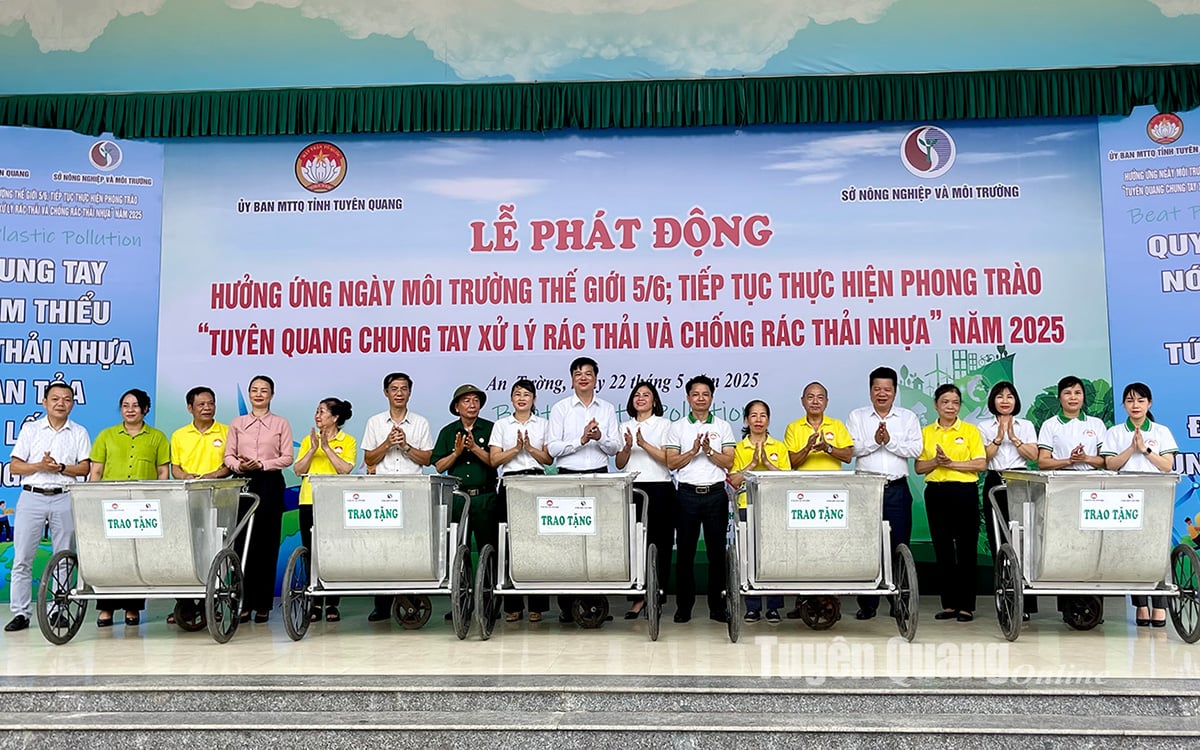
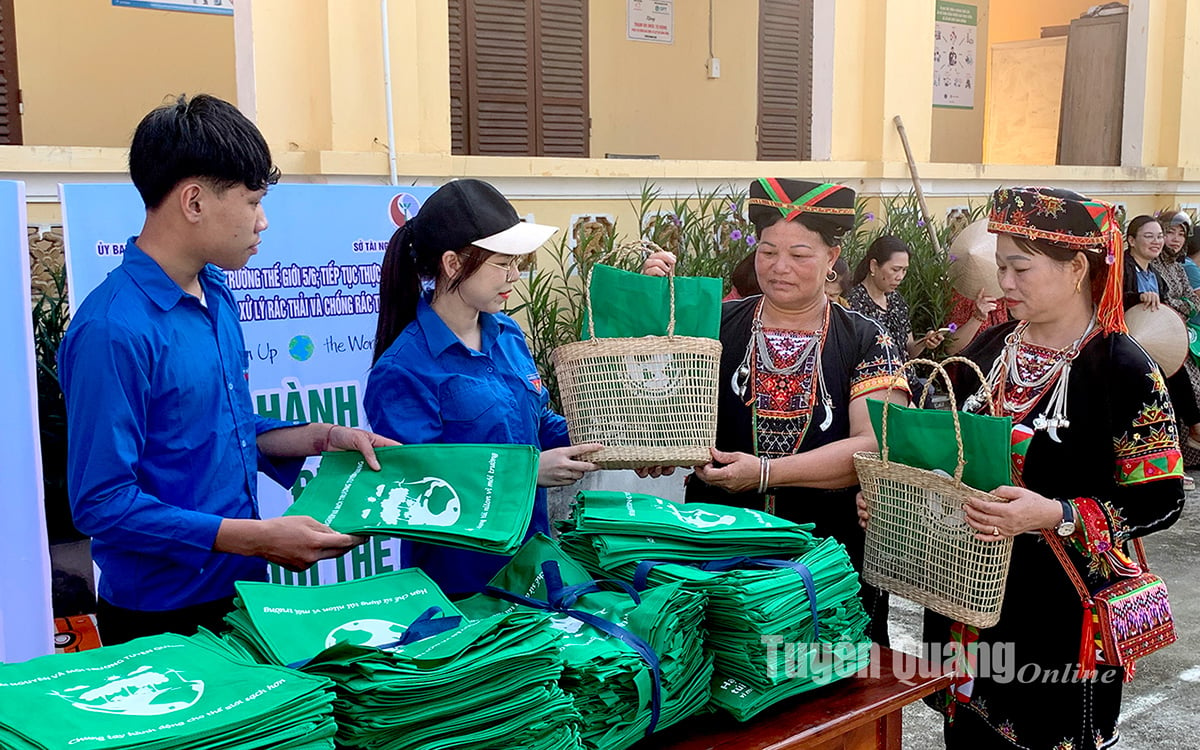
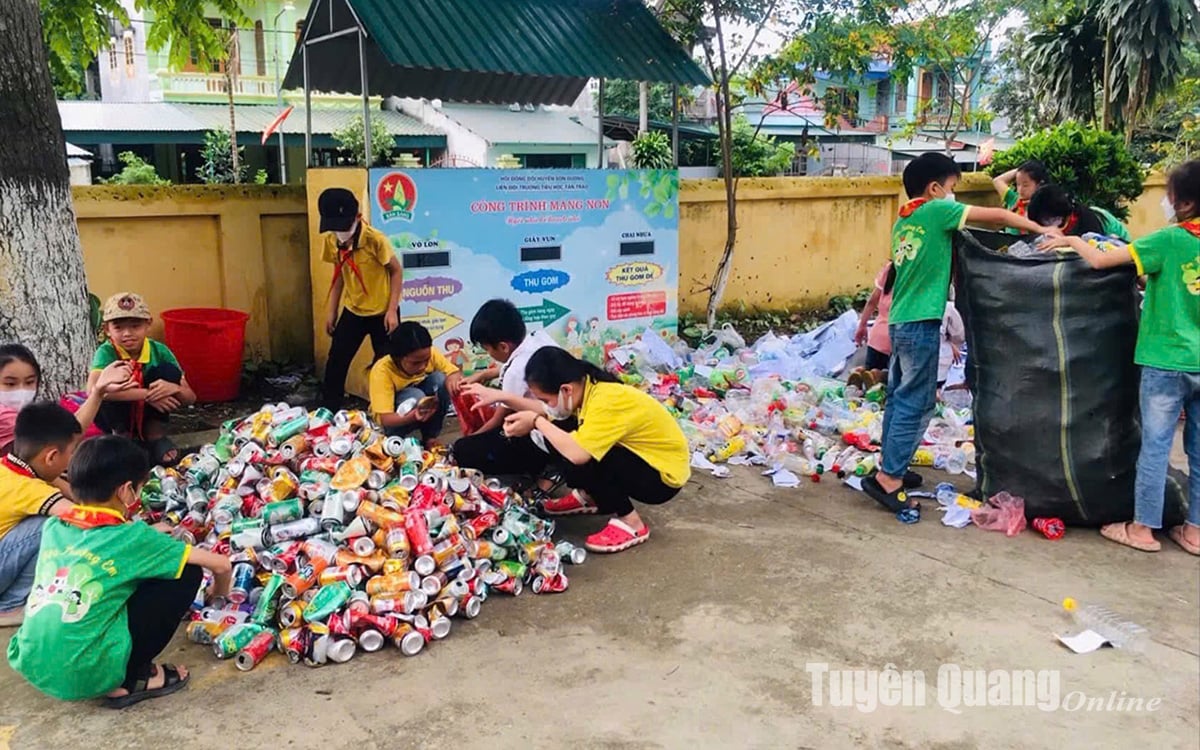
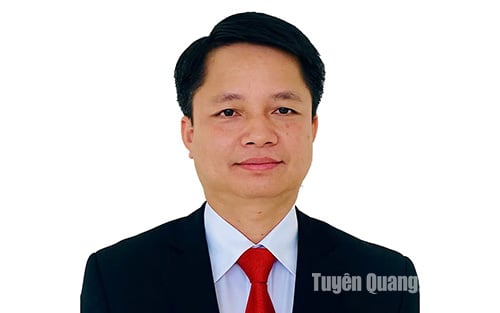
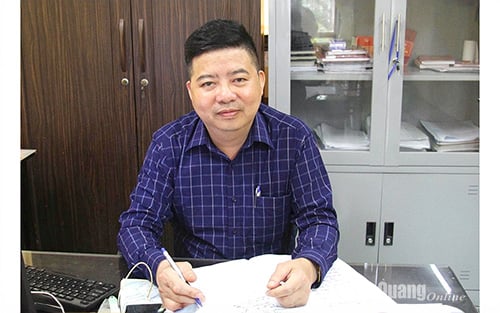
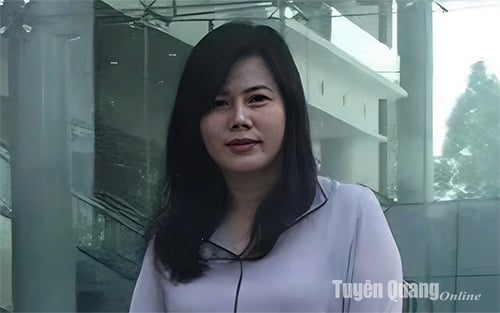
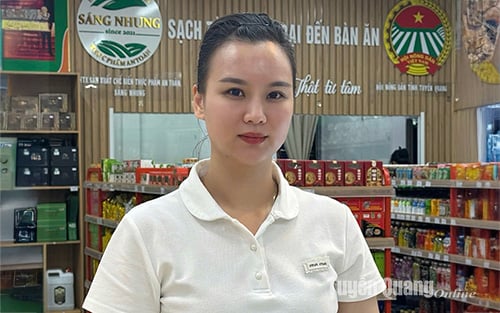






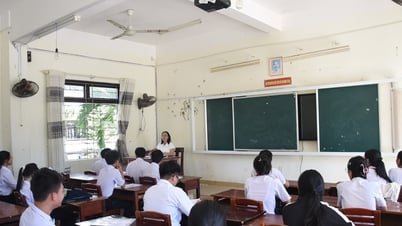

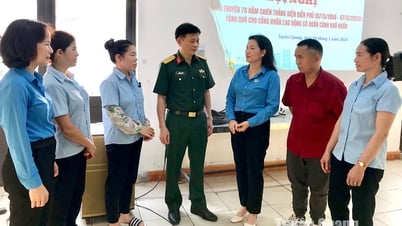
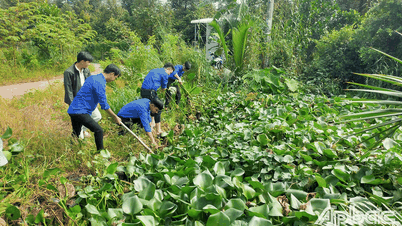

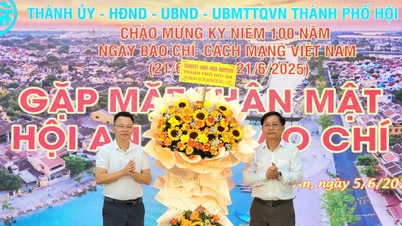
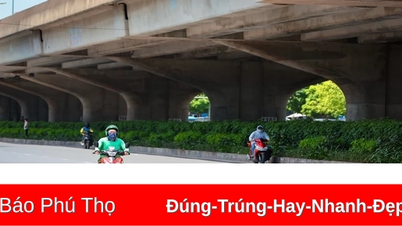

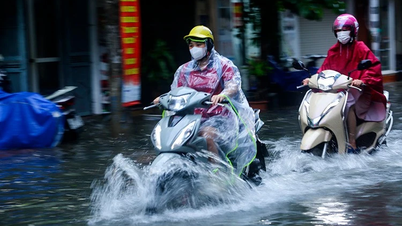





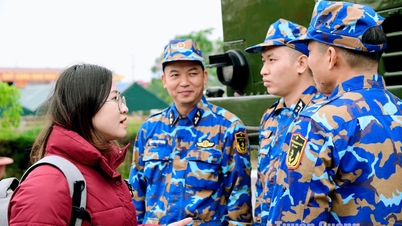
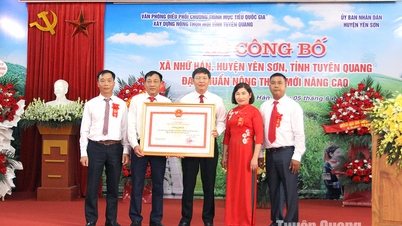
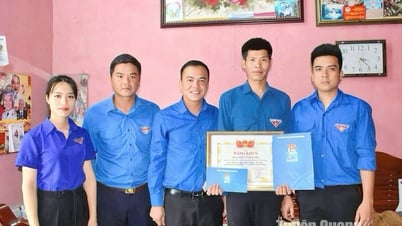
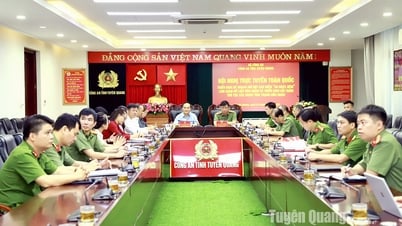
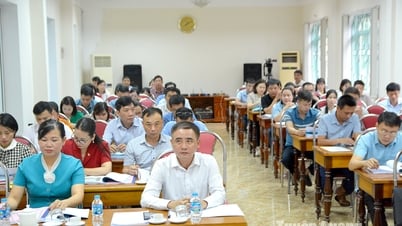
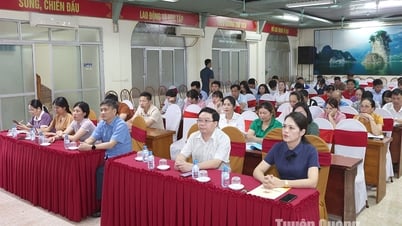




































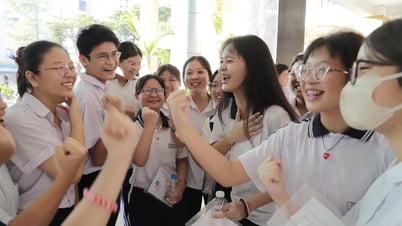
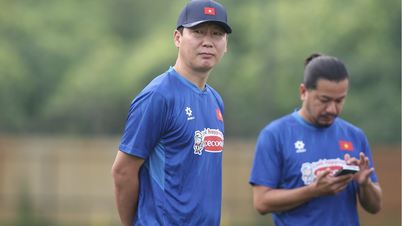
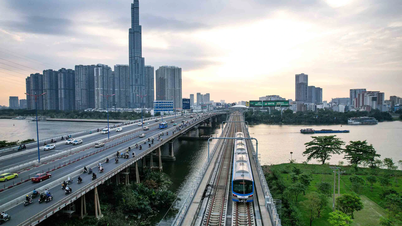


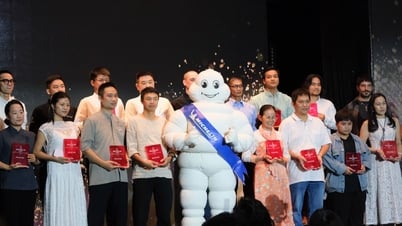
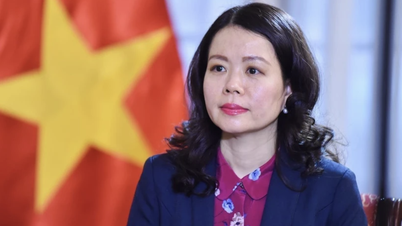








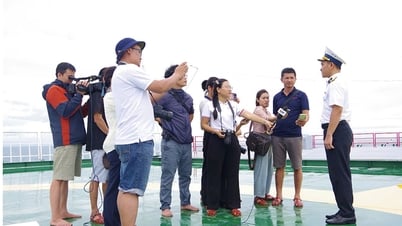

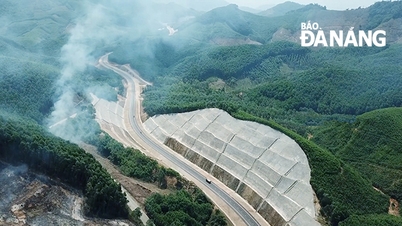


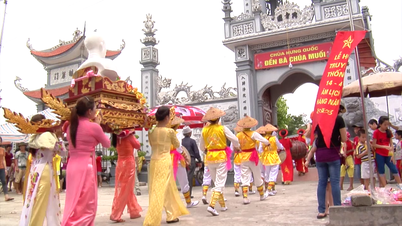










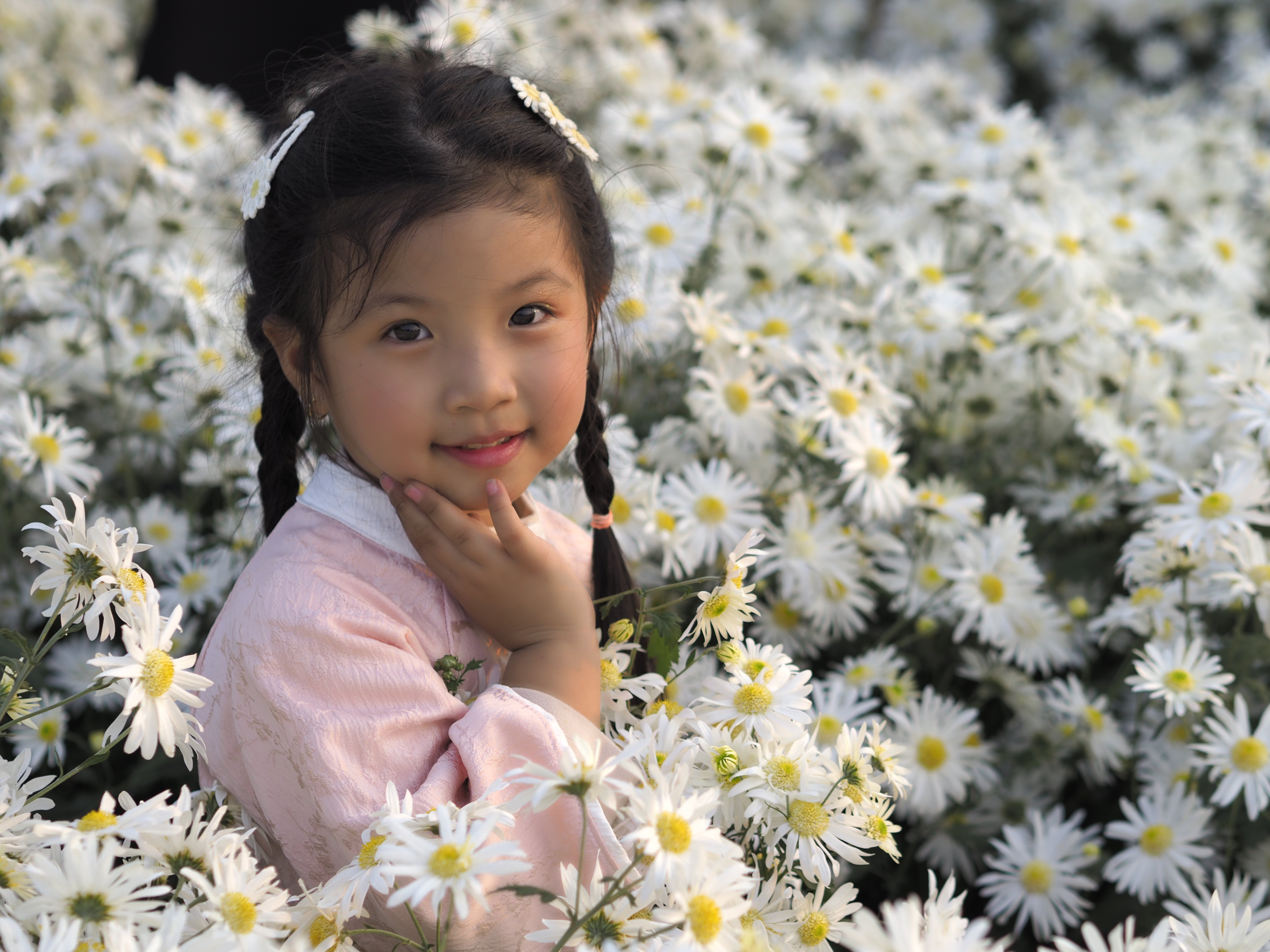
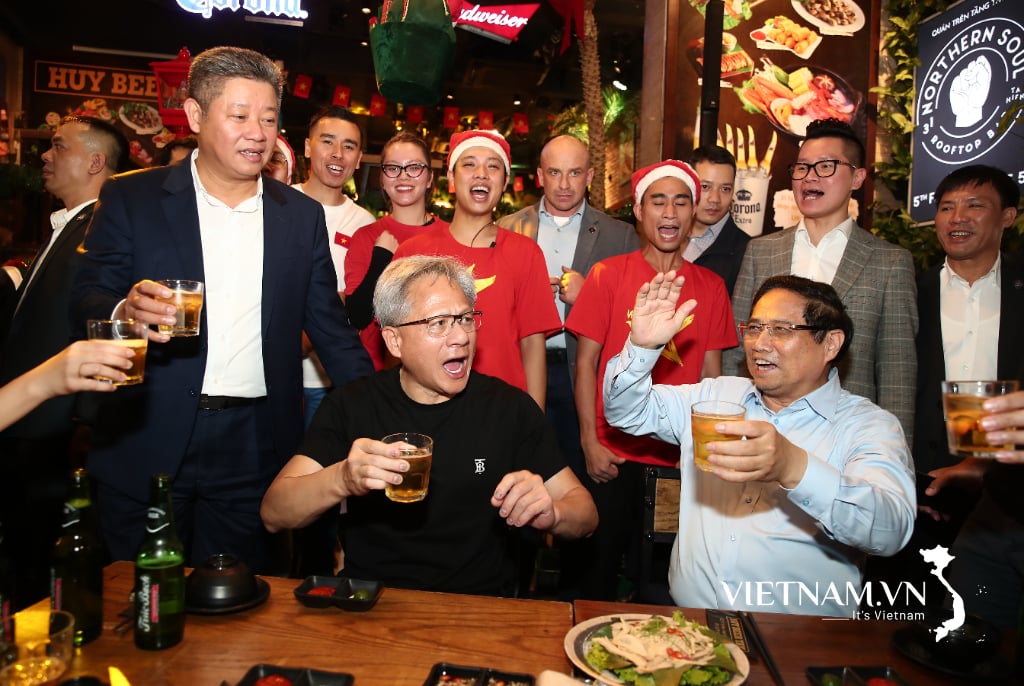
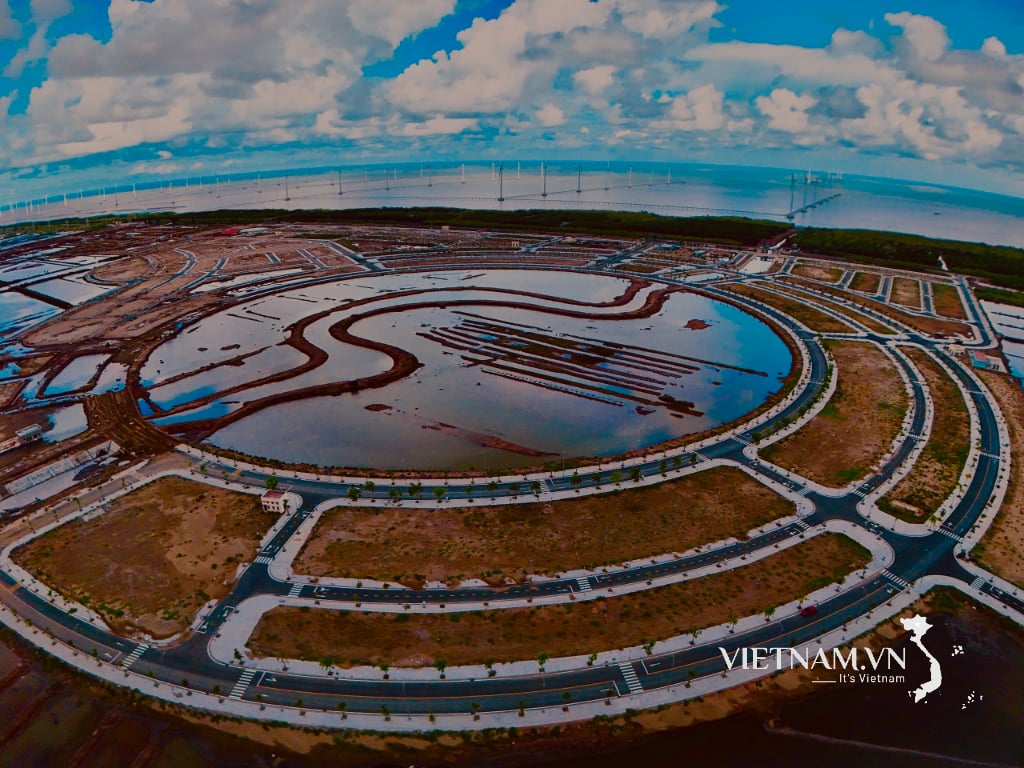
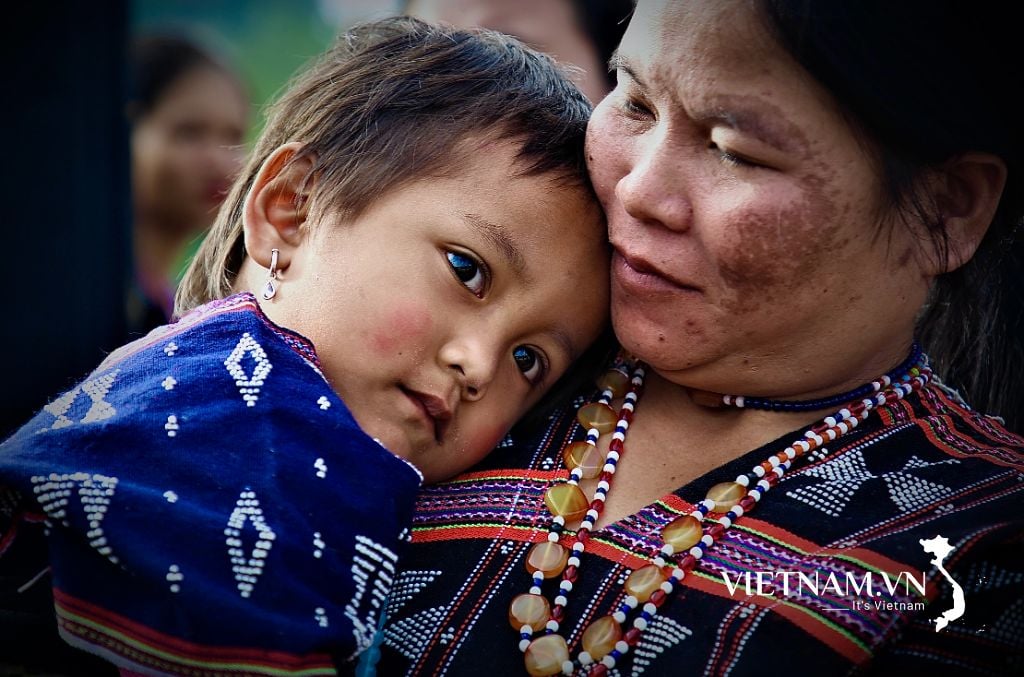
Comment (0)